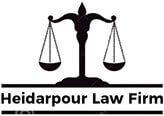A Quick Guide to the Telephone Consumer Protection Act (TCPA) of 1991

The TCPA is a statute the Senate enacted to protect consumers from voice calls, texts, and other forms of telemarketing communication. This law also restricts using prerecorded voice messages and automatic dialing systems and collection systems.
If you feel a telemarketing company has violated this rule, you may file a complaint with the Federal Communications Commission. While this act was signed into law in 1991, it has changed in response to the times.
Provisions of the TCPA
The TCPA prohibits telemarketing companies or solicitors from making calls to homes before 8 am or after 9 pm. This law also requires that these companies keep a do-not-call list of consumers who have specified that they do not want to be called. This request must, in turn, be honored for five years. This was later amended to be more permanent.
When these companies make a call, the telemarketers must let the recipient know who they are making the call on behalf of and how the caller may be contacted.
These companies are also not allowed to use recordings and artificial recordings. Further, these companies cannot make prerecorded voice calls to emergency lines such as hospital emergency lines or 911. The calls these companies make can also not engage more than a single business at a time.
If these companies should violate the terms of the TCPA, a subscriber may sue the company for amounts up to $500 for every violation. The subscriber may also sue to recover the monetary loss, seek an injunction, or both.
The Do Not Call Registry
Congress delegated the do-not-call rules to the Federal Communications Commission. The FCC required companies to build their own databases. Initially, the FCC regulations were ineffective and could not stop these unsolicited calls, as the consumer had to request individual telemarketers to register them for the do-it-call registry.
Later, the Federal Trade Commission created the National Do-Not-Call Registry that prevented telemarketers from calling registered individuals. However, this law was later ratified and consumers could revoke consent to receive calls from banks, collectors, and telemarketers.
Declaratory Ruling and Order of 2015
As you would expect of other regulations, the TCPA has been amended over time to provide clarity. The Federal Communications Commission released the abovementioned ruling and order. This ruling and order addressed requests and petitions on how the act would be interpreted by the FCC.
This order was useful, as it defined the terms in the TCPA and clarified the details of the restrictions imposed on telemarketers and the rights of consumers. Some of the main components of the Declaratory Ruling and Order of 2015 include the following:
- Telephone service providers could now provide robocall blocking to consumers.
- Consumers would now be able to revoke their consent to receive SMS messages and calls at a time they preferred.
- Telemarketers would be prohibited from leaving prerecorded messages and making automated calls to wireless phones without the provision of consent.
- Callers would be required to stop calling reassigned wire and wireless numbers.
- Telemarketing companies would be allowed under some special circumstances to send SMS and call wireless phones without the need for consent. Some circumstances under which these calls and messages would be allowed include alerts about issues such as fraud and urgent medication refills. Even then, the telemarketing company would still be required to give the consumer an opt-out option.
If you have experienced spoofing or robocalls, understand the state and federal laws that protect you as a consumer. We have a clear understanding of laws related to telemarketing and spoofing and are ready to help. Talk to us at Heidarpour Law Firm for help.
